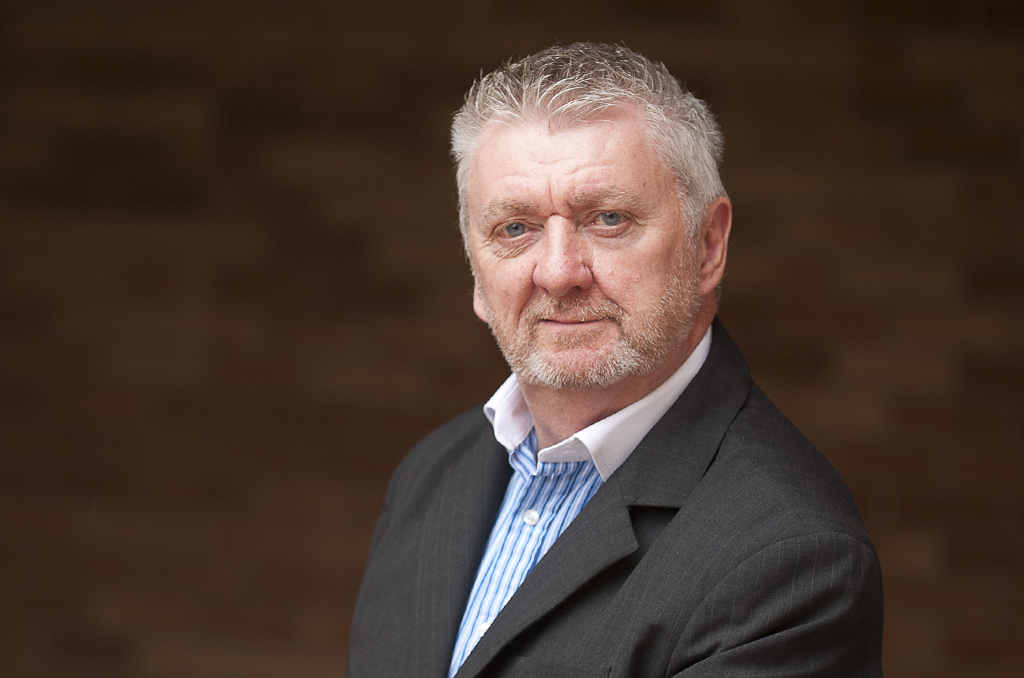What does 1940s Germany have in common with Iraq of the 1990s, when Saddam Hussein attacked the Kurdish people with mustard gas? Or with Cambodia of the 1970s, when the Khmer Rouge killed 1.7 million people? Or modern-day Afghanistan?
Students at Valencia can find out this fall by taking “A History of Genocide,” a special-topics course that will be taught by an expert in genocide studies and a witness to the atrocities in Rwanda and Bosnia.
Michael Savage, a former British military officer, has traveled the world as an expert on genocide and has lectured at the U.S. Holocaust Memorial Museum, Yale University and consulted with the United Nations on genocide prevention. Currently an instructor of U.S. and European History, Dr. Savage has created a special topics course on genocide.
The three-credit history course (HIS 2935, CRN 14527) will provide an overview of instances of genocide in the 20th century — from the Holocaust, to Armenia, to Rwanda and the former Yugoslavia.
The goal, says Savage, is not to simply teach students about the horrors of genocide — but to teach them how to recognize the kinds of conflicts that lead to genocide.
Born in England, Savage studied mechanical engineering and joined the British Army as a junior officer after graduation. In the Army, he was one of the officers chosen to study for a master’s degree. But rather than earn his master’s in military studies — as all officers do — Savage convinced his superiors that he ought to pursue Holocaust and genocide studies, so that he could serve as a consultant to the army in regions ripe for genocide.
During his 35 years with the British military, Savage served in Rwanda and Bosnia.”Because I was in both those places, (the students) will get a witness’s perspective, as well as a scholastic one.”
In the early 1990s, Savage reported that the situation in Rwanda could lead to genocide. Sent back to Rwanda in the spring of 1994 to re-appraise the situation, Savage and two colleagues were in the country for the assassination of the country’s president and saw the killing escalate. “The killing rate in Rwanda was far in excess of the Holocaust,” he said. “They killed 800,000 with farm implements in 100 days, but in actual fact, most of the deaths occurred in the first 30 days — something like 27,000 people being killed a day.”
He has also taught courses and lectured in Israel, Germany, Canada and England. In the United States, he has taught a Holocaust course at Yale University, given presentations at the U.S. Holocaust Memorial Museum and consulted with the United Nations on genocide and genocide prevention.
Frustrated by the way the Holocaust is taught, Savage decided to offer a class that focuses less on emotion and more on facts, causes and ways to prevent genocide.
He notes that in U.S. schools — even in states where Holocaust studies are mandatory — most of the Holocaust curriculum take place in English classes. “Students read ‘The Diary of Anne Frank’ and that’s it,” he said.
“It’s very victim-centered,” says Savage. “We’ve got to get students to stop crying and start thinking.”
To illustrate, consider how Savage teaches about the Holocaust. His students do not study what happened at Auschwitz. Instead, they will begin their study of the Holocaust in the 1750s. “We look at the establishment of nation-states and we’ll get serious about the establishment of Germany in 1873 — and how that development pretty much made Hitler inevitable.” He then turns to the formation of the Nazi government and its planning of the Holocaust.
In the course, students will analyze the roles of leaders in promoting or limiting violence. They’ll also develop understanding of basic moral issues relevant to the study of group conflict. And they will suggest genocide prevention and reduction measures for western societies.
Because the study of genocide is a constantly evolving subject, Savage stays current by reading most of the 150 books published each year on the topic. He’s excited that Valencia’s East Campus Library has accumulated a collection of “the most up-to-date books on genocide that you can buy.” The library’s collection of genocide books is impressive — and not available at many colleges and universities, he added.
For a textbook, the course will use Ben Kiernan’s “Blood and Soil: The World History of Genocide and Extermination from Sparta to Darfur.” In addition to students who take the course, Savage hopes that faculty members will read some of the books in the library and ponder the questions of genocide.
“We might ask ourselves: Why haven’t Holocaust studies been successful? We haven’t made better people, we haven’t made better societies. We haven’t developed an understanding from the reams and reams of Holocaust education,” Savage said. Since the end of World War II, he says, 183 million people around the world have died as a result of ethnic cleansing, genocide or intentional starvation.
Instead of focusing on the causes of genocide, he says, the world has instead looked for boogeymen. Added Savage: “We have spent 70 years looking for bad people and bad regimes, which is shallow and meaningless.”

Comments are closed.